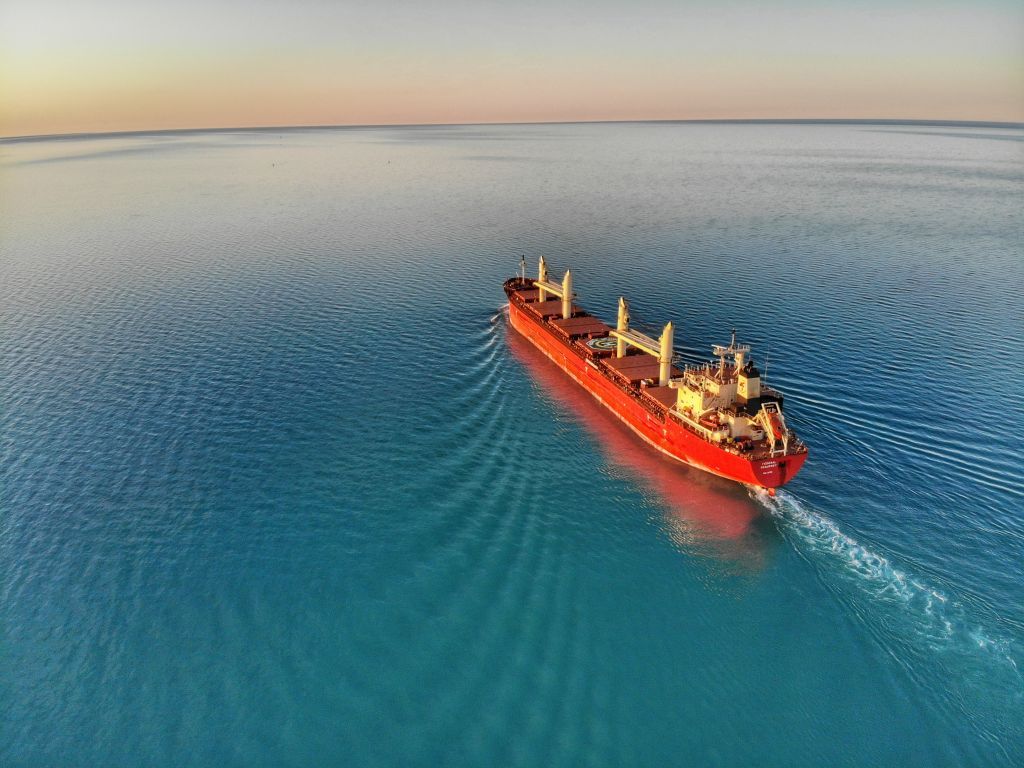California on (Im)possible Mission to Decarbonize Goods Shipping Industry – Can Boats Run on Solar Panels and Batteries?
Source: eKapija
 Monday, 08.08.2022.
Monday, 08.08.2022.
 10:39
10:39
 Monday, 08.08.2022.
Monday, 08.08.2022.
 10:39
10:39
(Photo: Unsplash/Chris Pagan)

According to the officials, big goods shipping companies need to lead the way to a cleaner future. But, to what extent is this possible at all? Experts say that this is an impossible mission at the moment. In order for it to be successful, technological progress and investments in alternative fuels are necessary. Some solutions already exist, but they need to be upgraded in order to truly make an impact.
At any moment, over 50,000 ships cruise the oceans of the world, transporting 90% of the total quantity of the goods being traded from port to port. All these ships run on fossil fuels, and it is estimated that this industry is responsible for nearly 3% of the greenhouse gas emissions.
Is there an alternative for fossil fuels? It is difficult to implement the technologies that have taken root in other sectors. Batteries are too heavy for sailing, solar panels on ships themselves take up too much space, whereas nuclear energy causes ecological and safety concerns. Some companies plan to use biofuels, produced from algae, plants, animal fats, but experts don’t expect this to take root to any great extent, due to the high demand from other industries.
Is green hydrogen the solution?
The two acceptable candidates are green hydrogen and green ammonia. Both can be produced with clean energy, without greenhouse gas emissions. But we are still far away from these technologies. Green hydrogen is still a too expensive technology for the quantity required for shops. Green ammonia is more available, because ammonia is used as a fertilizer in agriculture, but to get green ammonia, one needs green hydrogen…
Also, in order for boats to run on greener fuels, they need to be built differently. At the University of Michigan, researchers are still facing numerous issues regarding design and safety, such as how to best put alternative fuels on a boat, such as are of lower density than oil or gas, or how to safely store ammonia, which can release the toxic nitrogen oxide.
Along with upgrading the technology, joint action is necessary as well. Experts invite the International Maritime Organization (IMO) to set binding criteria for the whole industry. The current goal is non-binding and amounts to a 50% emission reduction by 2050.
Scientists agree that, with adequate infrastructure and incentives for green fuels, it is not impossible to reach zero emissions by the end of the decade on shorter routes, but that the decarbonization of transoceanic shipments will have to wait after all.
M. D.
Tags:
International Maritime Organization
California
Los Angeles
Long Beach
goods shipments
green hydrogen
green ammonia
decarbonization
fossil fuels
greenhouse gases
alternative fuels
biofuels
algae fuels
green fuels
transoceanic shipments
Comments
Your comment
Naš izbor
Most Important News
Full information is available only to commercial users-subscribers and it is necessary to log in.
Follow the news, tenders, grants, legal regulations and reports on our portal.
Registracija na eKapiji vam omogućava pristup potpunim informacijama i dnevnom biltenu
Naš dnevni ekonomski bilten će stizati na vašu mejl adresu krajem svakog radnog dana. Bilteni su personalizovani prema interesovanjima svakog korisnika zasebno,
uz konsultacije sa našim ekspertima.


 Izdanje Srbija
Izdanje Srbija Serbische Ausgabe
Serbische Ausgabe Izdanje BiH
Izdanje BiH Izdanje Crna Gora
Izdanje Crna Gora


 News
News






